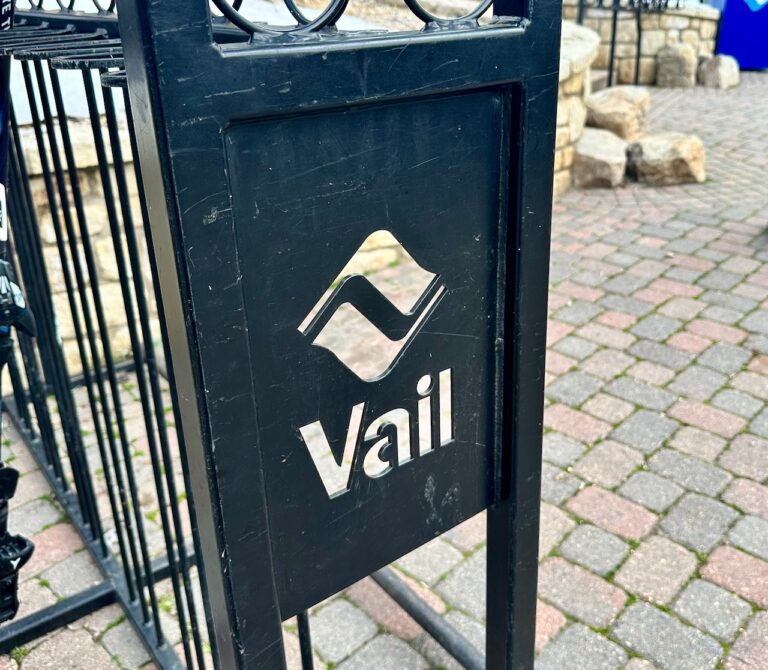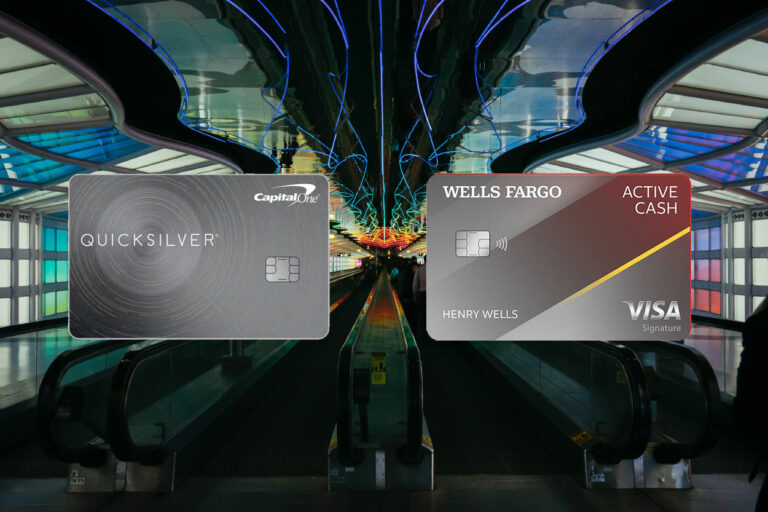Miles Junkie is supported by you, our readers, and this article may have references to products from one or more of our advertising partners. When you click on links to products we may receive compensation. For a more in-depth explanation visit our Advertising Policy.
Traveling more luxuriously and frequently while maintaining your budget is the essence of the potential of points and miles. In this guide, The Miles Junkie team will share our strategies and insights to help you navigate the world of reward travel. Our backgrounds vary, but we have discovered the joy and efficiency of travel through accruing and redeeming points and miles.
Who We Are
The Miles Junkie team is deeply knowledgeable in navigating the world of points and miles. Our travel experiences, from family vacations to luxurious world tours, were significantly enabled through rewards programs. Our expertise is not just for solo, wealthy, or frequent business travelers — it’s accessible to nearly anyone, offering a realistic and achievable path to fulfilling reward travel.

We encourage our new readers to engage actively by subscribing to our email newsletter for the latest updates in the realm of points, miles, and travel — and by participating in the forums and comment sections across our website, and various social channels like Facebook. This guide is not just about saving on travel but also about joining a community of like-minded travelers eager to explore the world in a more accessible and rewarding way.
Understanding Points and Miles Programs
Travel loyalty programs offer points or miles to reward members, with no universally fixed value for these currencies. For beginners in award travel, we suggest focusing less on the exact value of points or miles and more on how they can be used for fulfilling travel experiences. Additionally, most travel programs offer different levels of elite status which reward loyalty to a particular brand with extra perks and benefits like car rental upgrades, free checked bags, airline seat upgrades, or free WiFi.
Types of Loyalty Currencies and How to Earn Them
Points and miles are typically offered by airlines, hotel groups, rental car and credit card companies. Airline programs generally reward miles for flights and partner services, while hotel points can be earned through stays and affiliated purchases.
Credit card programs like American Express Membership Rewards or Chase Ultimate Rewards also offer points. Most rental car companies offer points that can be used toward future rentals or airline/hotel miles instead (but not both).
Confusingly, some airlines use points instead of miles and vice versa – but they’re essentially the same. Programs differ in how they award and categorize these loyalty currencies and there’s often a difference between points that count towards elite status, and points/miles that are redeemable for travel. Those distinctions are covered in our individual program overview articles.
Redemption Options
Points and miles can be redeemed for various rewards including flights, hotel stays, cruises, vacation packages, meals, and even non-travel items like gift cards or magazine subscriptions, though these usually do not offer the best value. Airline miles are typically best used for flights, and hotel points for stays, but partnerships can offer more versatile options, such as using hotel points for flights and vice versa.
Caveats in Redeeming Points and Miles
Redeeming points and miles is not always straightforward. Additional taxes and fees can apply, such as government and departure taxes, airline award processing fees, and fuel surcharges. For example, redeeming 50,000 Delta SkyMiles for a round-trip Comfort+ class ticket from New York to Mexico City incurred $139 in taxes & fees per ticket.

But, you will notice that since we’re a Delta SkyMiles branded Amex cardmember, we received 15% off the number of miles needed to redeem the flight.
Understanding Availability and Dynamic Pricing
Not all flights or hotel stays are available for booking with points and miles. Availability for award bookings can fluctuate, without a predictable pattern. Moreover, many loyalty programs now use dynamic pricing for awards, often linked to the actual cash cost of the trip, meaning the points or miles required for a booking can change frequently.
Other Important Concepts
- Choosing the right rewards program for earning points and miles is your first step in this journey. A useful tool can be to envision your ideal reward trip – be it a family trip to New Mexico, a romantic hotel stay, or a luxurious flight to a dream destination like Rome. It’s important to set this goal, make a note of it, and keep it in focus throughout your points-earning efforts.
- When setting your first redemption goal be realistic and specific. If you’re a beginner, a complex booking might be overwhelming, so set achievable goals aligned with your lifestyle and stage in the points and miles journey. Details like destination, type of accommodation or flight, and number of travelers can help refine your strategy.
- Understanding the timeframe within which you aim to redeem your points and miles is essential. This influences your earning strategies, whether you’re planning a trip in the next few months or sometime in the next few years.
- There are various loyalty programs offering hotel points, airline miles, and credit card rewards. Each program has its value, and the value of points or miles can vary greatly across redemptions.
- For maximum flexibility and options, focusing on transferable points from credit card programs is key. Transferable currencies like American Express Membership Rewards, Capital One miles, Chase Ultimate Rewards, and Citi ThankYou Rewards provide options across numerous airlines and hotel chains, both domestic and international.
- By earning transferable currencies, your options widen. For instance, Chase Ultimate Rewards points can be used for a luxury hotel stay or transferred to airline partners for business-class flights. They can also be used to book things directly through the Chase Travel Portal as if they were cash. This flexibility allows travelers to maximize their rewards across different programs and for various types of bookings.
- Your redemption goals should guide your choice of rewards and loyalty programs. Understanding the myriad ways to spend fewer points through transfer partners, periodic transfer bonuses, and airline alliances can greatly enhance the value of your points and miles. Delve into understanding redemption prices and optimizing awards across different loyalty programs.
Armed with an understanding of points and miles, along with knowledge of different rewards programs, you’ll be ready to pick your first redemption goal. The tips and insights shared here are a roadmap to tailor your earning and redeeming strategy to your travel dreams.
Earning Points & Miles
Earning points and miles is crucial for realizing travel goals, and it’s even possible for those who don’t travel frequently. You can accumulate rewards through daily expenses, strategic use of credit cards, online shopping portals, as well as during travel itself.
Rewards Credit Cards

One of the simplest methods to earn points is through rewards credit cards. Used for everyday purchases like coffee, gas, childcare, or streaming services, rewards cards can amass a significant number of points with minimal effort. They also provide access to valuable transferable points.
If new to this, it’s essential to lean about the different cards available and pick the right card to match your credit card usage for travel benefits. Some high-end cards also include perks such as airport lounge access, hotel collection benefits, or automatic elite status with hotel and car rental chains. While some of the mid-tier cards, that don’t provide those high-end perks, may offer bonus points on things you may already allocate more of your monthly spending towards.
Online Shopping Portals
Beyond credit cards, online shopping portals offer another easy way to earn rewards. By simply starting your shopping through a portal, such as the AAdvantage portal or SkyMiles Shopping, you can earn on purchases you’d make anyway. Tools like Cashback Monitor will help you find and choose the most rewarding portal — often coupled with additional bonuses for new shoppers.
Earning Through Travel
Though not mandatory, traveling can boost your points and miles significantly. Ensure you’re signed up for airline and hotel loyalty programs to collect points on every journey. Partnerships like earning Delta SkyMiles with Lyft or Marriott Bonvoy points with Uber increase rewards. And note that most partnership programs like that require opting in or some kind of pre-registration.
Earning while traveling can be especially rewarding if it’s on someone else’s dime — which business travel often is. It’s important to understand that most airline and some hotel programs have gone to revenue-based earning programs where, instead of basing your rewards on the miles you fly, they’re based on the amount of money spent. That said, you can rack up significant bonuses if you’re able to obtain status in their elite member program, or fly in an upgraded class of service.
Most car rental rewards programs allow you to earn points towards free rentals or credits in your favorite airline/hotel reward currency. Starting out, or if you don’t rent cars often, it’s likely best to direct your rewards from car rentals towards airline miles since car rental points can be difficult to accumulate quickly enough for a meaningful redemption.
Other Earning Methods
Beyond these mainstream methods, other tactics can further bolster your points balance. These include participating in airline and hotel dining programs like MileagePlus Dining, paying taxes with your credit card, completing surveys, or crediting miles to partner airline programs when you’re flying outside of your usual routes. For example, you may find yourself on a work trip to Japan, and just because you’re booked on Japan Airlines doesn’t mean you can’t credit the miles you earn to your AA or Alaska rewards account since they’re a oneworld alliance member.
Maximizing Through Stacking
Successful points and miles earners don’t just rely on one strategy; they stack methods. For example, use a Chase Sapphire Preferred Card for Instacart groceries, order through the Rakuten portal to earn additional Amex points, or pay with an Amex Platinum or Gold Card for maximum points per dollar. This strategy can be applied to many routine purchases, maximizing every dollar spent. This approach is a great initial step for those new to earning rewards or those without a rewards credit card.
Flight Redemptions

Pricing methods in loyalty programs include fixed-value, tiered, and dynamic pricing. Dynamic pricing varies based on factors like demand and availability. Major U.S. airlines have largely shifted to dynamic pricing, where the required number of miles changes – and generally corresponds to fluctuating cash rates. Some airlines still adhere to distance or region-based award charts that set a fixed number of points for specific routes or zones.
While U.S. airlines mainly use dynamic award pricing, many still have published award charts for flights with partner airlines. These partnerships usually align with airline alliances like oneworld, Star Alliance, and SkyTeam, allowing for more flexible use of miles. For instance, American Airlines, part of Oneworld, enables its AAdvantage miles to be used on its own flights and flights of other Oneworld members or non-alliance partners like Air Tahiti Nui and Etihad Airways.
Using points and miles for booking flights involves several steps. Start by choosing a destination. Then, research the flight cost in miles on the airline’s website, considering one-way tickets for better dynamic pricing options. Watch out for varying taxes and fees, especially with partner airlines. If necessary, transfer points from credit card programs to the airline’s frequent flyer program before booking. Sometimes, you might find better value by booking through a partner airline’s program, thanks to the differing award charts or available credit card transfer options.
Consider using points from one airline to book flights operated by another within the same alliance. This can lead to substantial savings and better flight options. For example, using Flying Blue miles instead of Delta SkyMiles can be more economical for the same exact Delta flight – only booked through Air France.
Keep an eye on individual program “Deals” pages to see if one of your dream destinations is available at a reduced rate.
To get started, apply your points and miles goals to research award flights, potentially using services like Google Flights to determine the operating airlines and best routes. While some airlines allow award flight searches without an account, others require one – but signup is usually free of charge. The exploration of award flight options, including those through partner airlines, can reveal excellent redemption opportunities, enhancing the value and utility of your miles.
Hotel Redemptions
Hotel loyalty programs also offer varying methods for pricing award nights, providing different values and opportunities for travelers. Wyndham Rewards, for instance, prices their award nights based on property type, with redemption costs ranging from 7,500 to 30,000 points. Similarly, Choice Privileges’ pricing depends on the property and the night of the week, typically falling between 6,000 and 35,000 points per night.
Hilton Honors, IHG One Rewards, and Marriott Bonvoy, on the other hand, employ dynamic pricing for their award nights. Hilton’s standard nights range from 5,000 to 150,000 points, and both IHG and Marriott’s redemption rates vary from 5,000 to 120,000 and 126,000 points respectively, with options to redeem more points for premium rooms.
World of Hyatt stands out with a structure based on hotel category and date type, offering standard nights from 3,500 to 45,000 points, and distinct charts for more exclusive rooms and peak time periods.
These programs can be particularly valuable in situations like high-demand periods or special events. Programs like Best Western Rewards, World of Hyatt, and Wyndham Rewards still use fixed award charts, often offering better value during peak seasons compared to those with dynamic pricing. To get the most from these programs, it’s essential to be mindful of the points’ valuation and how it aligns with your travel goals and hotel rates.
When booking a hotel stay using loyalty points, comparing the cost in points versus cash for various hotels can aid in finding the best value. It’s For instance, redeeming 10,000 Hyatt points for a stay worth $170 or more is generally seen as a good deal, while using the same number of points for a $99 room night may not be as beneficial.

Credit card points add another layer to the hotel booking strategy. Points from credit cards like American Express Membership Rewards, Capital One miles, Chase Ultimate Rewards, and Citi ThankYou Rewards can be transferred to various hotel loyalty programs, often at a 1:1 ratio. This opens up options in more locations and potentially better values, depending on your specific travel plans and the transfer partnerships available.
To utilize these strategies effectively, explore various hotel program websites or apps, checking award rates for your desired destination and dates. Even if you’re not ready to book immediately, this research can inform your points-earning strategy and prepare you for future bookings. Understanding the dynamics of each loyalty program and leveraging the transferable points can significantly enhance the value and options available for your travels.
Maximize Rewards Through Your Credit Cards
Earning rewards through credit card purchases can significantly boost your benefits, with many cards offering more than the basic one point, mile, or percent cash back per dollar spent. Cards often provide extra rewards in certain categories, like dining or gas, varying based on the card. It’s essential to choose a credit card that aligns with your regular spending patterns, such as selecting a card with high rewards for gas if you have a regular long commute or a card that specifically rewards grocery purchases if you’re feeding a large family.
Travel rewards credit cards are a popular choice, especially for earning hotel points or airline miles linked to specific brands like American Airlines, Delta, Hilton, and Marriott. Beyond accumulating points and miles, these cards can offer additional perks like elite status or free checked bags. Some hotel cards even provide an annual free night stay, and other travel enhancing benefits.
Another valuable option are cards that earn transferable rewards that can be converted to multiple airline or hotel reward currencies. This flexibility is ideal for travelers, as it opens up a range of booking possibilities. Major transferable currencies include American Express Membership Rewards, Chase Ultimate Rewards, Capital One Miles, and Citi ThankYou Rewards.
When choosing a new credit card, it’s crucial to weigh factors like desired rewards, acceptable annual fees, and foreign transaction charges. Cards with high sign-up bonuses can be particularly lucrative, sometimes offering over $1,000 in first-year value or substantial point bonuses after meeting initial spending requirements.
Beware, those with existing credit card debt should prioritize repayment over earning rewards. Options like zero-interest or balance transfer cards can help, but paying down debt is essential. For those with poor credit, starting with a secured card and gradually improving credit scores is essential to gaining the possibility of future financial stability. Remember, responsible credit card usage entails paying off balances in full each month; failure to do so can easily outweigh any reward benefits.
As mentioned earlier, some higher end cards offer additional perks in addition to their ability to earn transferrable points. Things like airport lounge access, elite status with hotels and car rental companies. Statement credits for Global Entry or TSA Precheck, and travel credit towards hotels or airline fees. Additionally, you may also gain access to hotel collections like Fine Hotels & Resorts from Amex or Chase Luxury Hotel Collection — programs which offer early check-in and late checkout, free breakfast each day, resort credits and free room upgrades. If you’re a frequent traveler, these benefits can certainly be worth the extra few hundred dollars in annual fees.

Finally, to maximize your credit card rewards, conduct a thorough review of your current cards, their earning rates, annual fees, and other benefits. Analyze your monthly expenses across different categories like dining, groceries, and travel. Identifying spending areas where you’re not earning enough rewards can help you select a more suitable card, potentially leading to a more rewarding credit card portfolio. Whether it’s reallocating spending or acquiring new cards with better bonuses, the goal is to enhance your overall earnings from your regular credit card usage.
Maximizing Redemptions Using Transfers
Transferable rewards from credit cards can offer significant value and flexibility for travel bookings. Credit cards with transferable currencies, like American Express Membership Rewards, Chase Ultimate Rewards, and Citi ThankYou Rewards, allow users to redeem points with multiple airline and hotel partners. This flexibility can result in better rates compared to using miles from a single loyalty program.
For instance, booking a business class flight from Los Angeles to London could cost over 300,000 Delta miles if using Delta SkyMiles directly. However, by transferring points from other programs to Virgin Atlantic Flying Club or Air France/KLM Flying Blue, the same flight could cost as little as 67,500 points or 86,000 miles, respectively, albeit with varying fees. This demonstrates that different transfer partners offer varying redemption rates for the same flight, showing the importance of knowing your options and choosing the best one.
Tools like point.me (subscription required) and seats.aero (free and paid versions available) simplify the process of searching for flight awards across different loyalty programs. These tools, which might require a fee, can help travelers easily find the best award flight options without having to check each program individually.
The flexibility of transferable points is also beneficial for hotel stays. For example, Chase Ultimate Rewards points can either be redeemed directly through the Chase travel portal or transferred to a hotel loyalty program like Marriott Bonvoy for potentially greater value.

With transferable rewards, you should explore transfer options to optimize future travel plans — and while using tools like seats.aero or point.me can help gauge which rewards are most beneficial for your travel goals, you can also get a good feel for how many points you’ll need, and what constitutes a high-value redemption, by performing regular searches through airline and travel portals directly.
Should I Use Points or Cash?
Deciding between using points and cash for a particular component of your travel requires understanding the value of your rewards. It’s crucial to compare the cost of your trip when using points and miles versus cash. For example, to assess the value of using points at a hotel like the Ritz Carlton Hotel De La Paix in Geneva, compare the cash rate per night with the points needed. If a room costs ~$1050 or 80,000 Bonvoy points, the value is $0.013 per point, which is a pretty solid return since points are only worth one cent each for straight-up cash back.


However, the value can vary between hotels and scenarios. Take the Hilton New York, Times Square: if the cash rate is $375 and the points rate is 81,000 Hilton points (resort fee waived on reward nights), subtract the non-waivable fees from the cash rate to compare. Here, the calculation is $375 / 81,000 points = $0.0046 per point, less than a standard Hilton reward which generally gets .5 to .6 cents per point of value. This indicates a slightly less than favorable redemption, but it still might be worthwhile depending on your goals and reward strategy.
The same principles apply to airline miles. If a flight to Las Vegas costs $316 or 26,000 United miles plus $11.20 in taxes and fees, subtract the fees from the cash price and then divide by the miles required. With a result of 1.17 cents per mile, and considering general valuation of United miles, this would be a reasonable redemption, especially if you’re not saving miles for a higher-value redemption later. My strategy is to spend miles when I find a reasonable redemption and save the cash. Cash is good for lots of things, but solid mileage redemptions are not guaranteed, and even if you save up a war chest of miles or points, nothing is stopping the airline from devaluing them in the future.
On the other hand, keep in mind the benefit of paying cash as you become more familiar with rewards programs – especially when it comes to obtaining elite status. If you’re near the end of the qualification period and close to reaching elite status, or a higher tier, you’ll want to consider the opportunity cost of using points vs cash in your calculus. Some programs allow rewards redemptions to accrue credit towards elite qualification, and some do not.
Remember, the value of points and miles can be subjective and dependent on personal travel goals. While math can guide your decision, it’s not the only factor. If you’re new to using points and miles, any exciting travel redemption is worthwhile. Always compare the point-based cost to the cash requirement for your intended trip to determine the most beneficial use of your rewards.
Bringing It all Together
When you plan an award trip using points and miles, start by specifying the details of your dream vacation, including the destination, companions, travel class, and accommodation style. Decide if you prefer a luxury trip with first-class flights and high-end resorts, or a more budget-friendly journey — especially if you are on a short timeline. Determine your preferred airlines and hotels, then your travel dates, ensuring you have ample time to accumulate the necessary points and miles for redemption.
Next, focus on selecting award programs for your flights, hotel stays, and other trip components like sightseeing activities. Investigate the required points or miles and their types for booking your chosen flights and accommodations. Utilize the award program websites to estimate the cost of your trip, even if your dates aren’t final. You can search mock or estimated dates and employ flexible date search options to help determine your best redemption timeframe.
Identify the most suitable programs for earning the points you need. Options include saving specific airline miles and hotel points, and/or accumulating flexible, transferable points through programs like American Express Membership Rewards, Capital One miles, or Chase Ultimate Rewards — referencing earlier guidance to understand the value of different rewards and how to maximize them.
Ensure you’re enrolled in the necessary loyalty programs and sign up for the most advantageous credit card aligned with your travel goals. Choose a card offering a substantial sign-up bonus and rewarding everyday spending. This strategy can significantly boost your points for travel redemptions. Don’t forget to explore various ways to earn points outside of travel, such as through online shopping portals, dining programs, online surveys, and ride-share and food delivery partnerships.
While accumulating points, engage in practice award searches and price out redemptions. Familiarize yourself with your loyalty program’s booking process, availability, and other costs associated with awards. This preparation makes the actual booking process smoother and less daunting. Keep educating yourself on award travel tactics, including leveraging program specials for the best value – for instance if Chase runs a limited time bonus for transferring points to one of your selected programs.
Finally, before confirming your booking, reassess whether to use points or cash for each trip element. Sometimes, the cash price may be low enough to render the use of points less beneficial. After tracking your flights and hotel bookings for a while — through skyscanner.com, or an aggregator like expedia.com as well as through points/miles redemption portals — you’ll understand your loyalty program redemption levels better and make informed decisions about using points versus cash. After thorough planning and calculation, you’re ready to book your dream trip using points and miles. Your first successful redemption will reveal the simplicity and joy of traveling more affordably.

Editorial Note: Information and opinions articulated in this article are solely those of the author’s, not those of a credit card company, bank, airline or hotel chain. This article has not been reviewed or approved by or otherwise endorsed by any of these companies or organizations.








